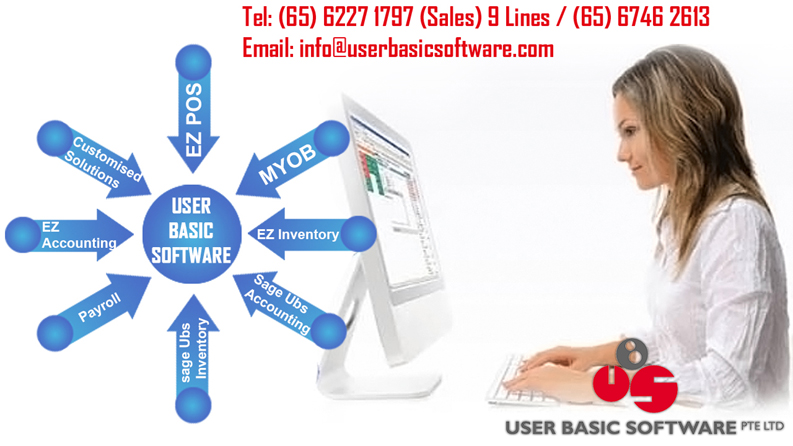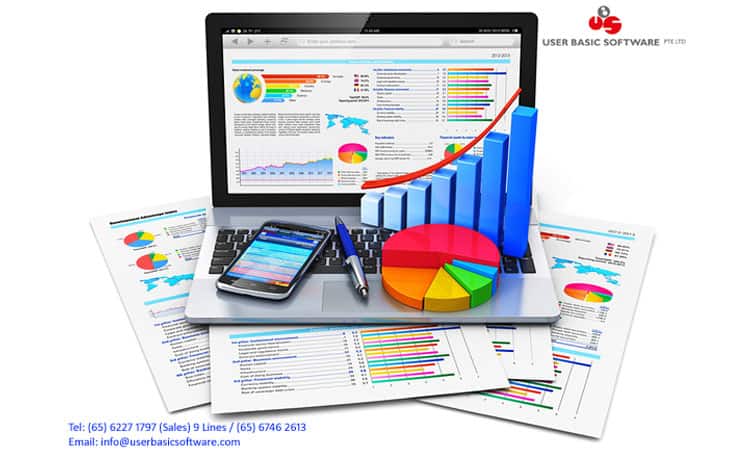A Complete Accounting Solution is Reliable Data Backup
“Solution” is a word that draws a fair amount of bad press from the technology jargon police. Some people seem to think it’s fuzzy or puffed up. I don’t happen to agree with those people.
I actually use the word “solution” quite a bit. And there are good reasons why I don’t plan to stop any time soon.
Consider the case of accounting technology. The reality is companies don’t just need accounting software. Now, you could say what’s required is a “collection of various technologies and approaches pulled together to help solve business management and financial challenges.” But why would you do that when “accounting solution” carries the same meaning and is so much easier on the tongue?
“Solution” works. And, part of the reason it works is that it is adaptable and inclusive. Ultimately, when it comes to technology, it’s not the software, it’s not the hardware, and it’s not the approach that matters. It’s how everything works together—as a single solution.
As with any solution though, there are the parts that grab the headlines and the ones that are less frequently discussed. One of the most important, but often overlooked, parts of a complete accounting solution is reliable data backup.
Tape and other physical media-based backups have long provided insurance against the threat of corrupted or lost data, but require continuous manual transportation to solve the issues related to physical threats to onsite data storage, such as fire, flood, theft, Godzilla, or what have you. The rise of the cloud, though, has provided an answer to the question of how to easily store data offsite.
Is it appropriate to utilize cloud storage services for financial data? Why or why not? What benefit does it offer and what precautions need to be taken when sending sensitive data over the internet?
Cloud storage services can be a critical component of any data protection scheme and, when properly implemented, is an ideal solution for separate-site backup of financial data. Certainly, care must be taken in selecting a cloud storage service – with a focus on security practices, reliability, and support, but a quality vendor will provide a cost-effective mechanism for securing data against any on site physical disaster (e.g. theft, virus, fire, flood, etc.). You also have the ability to access data universally or share it with colleagues. This makes accessing data effortlessly when on the move.
To ensure that your data remains safe once offsite, make sure that your cloud storage provider offers client-side encryption of the data (i.e. before it leaves your machine). It’s also essential to have the channel that is transferring the data encrypted, usually done with SSL in the same way your online banking is secured.
What actually happens if a backup restore needs to occur?
Data can be restored directly from the service provider’s website. You can download individual files that may be most crucial first and set a “restore” for the rest of the data. We offer zero latency between a restore request and download starting to ensure the shortest time for restores.
What opportunities do cloud storage services offer for supporting collaboration?
Collaboration features may differ with different service providers. Our service allows you to share files and folders with others. Files can be shared via URL links, which can also be password protected. Folder sharing allows you to collaborate with others in real-time. Whatever changes one person makes in a shared folder, will be synced across all users that are sharing that folder.
One of the goals of cloud storage is to provide universal file access regardless of location or device platform. What challenges might prevent universal access though?
Universal access only requires that you have access to the Internet. So as long as you have access to the Internet, you will have access to your data in the cloud.
Our clients and web access tools always use HTTPS so that your communication is secure, a risk heightened when you are on a public network (e.g. coffee shops, libraries, airports, etc.).
What should business owners be thinking about when selecting an appropriate NAS appliance?
Network Attached Storage (NAS) devices are great for SMB users who have large amounts of data they need accessible quickly over a local area network. Specifically for businesses where minimizing downtime is essential, look for a NAS that allows hot-swapping of the disks. You would also want additional disk redundancy.
NETGEAR, QNAP, Thecus, Drobo, Western Digital, Synology, D-Link, and other leading NAS manufacturers have NAS models that support hot-swapping of disks. Ideally, you will have a robust cloud backup solution pre-installed and integrated tightly with the NAS management interface – something ElephantDrive is the world leader in (our software is embedded in the firmware of the NAS devices made by the manufacturers listed above).
What strategies and features can be put into place to make a backup as easy and seamless as possible?
Although you would want to check on your backups periodically to make sure they are working properly, you still need your backup solution to be as simple as possible to set up and run.
Effective cloud backup requires a one-time setup, minimal maintenance, and time from your IT team, and eliminates the need to manually create backups and transfer them off-site. Simply set up your backups for real-time or automatic scheduled backups (daily, weekly, or monthly).
When shopping for a cloud backup service, make sure that your backup service works across multiple OS platforms, including NAS platforms, because you may change your hardware at one point or another. This will ensure that next time you have a new device, you can easily back it up to your existing cloud backup service with minimal time spent on learning how to set it up.
Source: Find Accounting Software
Please visit us on www.userbasicsoftware.com














